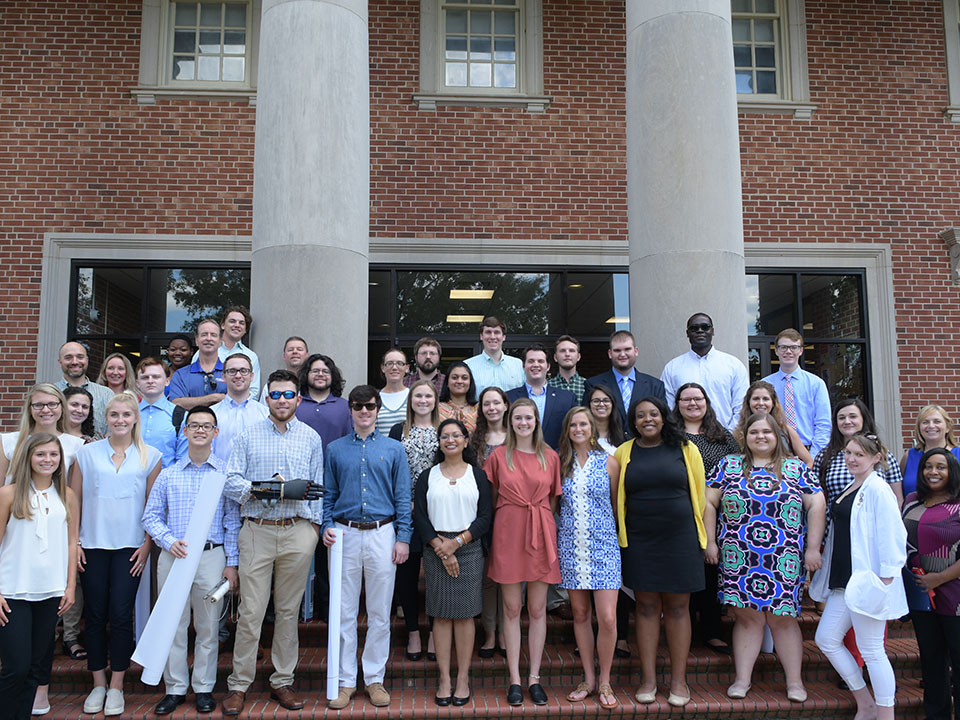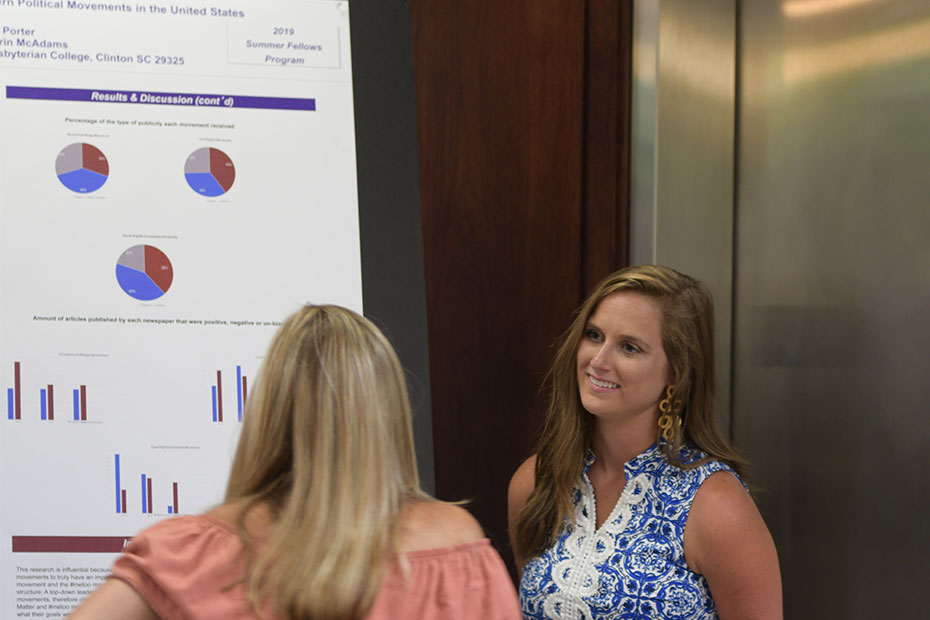Students present their findings at summer research symposium

PC students recently shared their weeks of research on the PC campus during the annual Summer Research Symposium.
On Wednesday, July 24, more than 30 students from the College of Arts & Sciences and School of Pharmacy presented their work, which included research topics from the sciences, humanities and social sciences.
“It was a great pleasure to work with everyone on campus,” said Summer Fellows Director Dr. Payal Ray, who is in her first year of directing the program.
“I love being at a liberal arts institution, and this is my chance, I feel — and also for all of my colleagues and students — to really hear what the other departments on campus are doing.”
Guided and Independent Research
Student researchers are mentored by faculty and also practice independent learning during the summer.
“This is eight weeks of intense research, and some of the time you’re completely on your own, which is what research is,” said Ray, assistant professor of biology. “You’re doing your own learning, especially in the sciences, also in the social sciences. There’s failure in research. You do a social experiment; it doesn’t work out; they have to learn how to troubleshoot. It’s almost like solving a mystery.
“It’s learning to deal with the fact of, ‘I made a hypothesis, and it isn’t correct, or it isn’t supported. Where do I go next?’ So, it’s not always black and white. There really is no substitute for that research experience.”
Student researchers gave 15-minute presentations to their peers and mentors at Harrington-Peachtree Center during the morning of the event. A luncheon followed the presentations, and guests attended a poster session at the James H. Thomason Library in the afternoon.
Studying Current Topics

Elli Porter, a rising junior who participated in Summer Fellows, was one of the students presenting during poster sessions. Her research topic was “The Role of Publicity on the Success of Modern Political Movements in the United States.”
Porter read books and scoured newspaper archives for information and articles on movements like #MeToo, Black Lives Matter, Women’s Suffrage, Civil Rights and Equal Rights.
Porter said she studied how “good and bad publicity does its job in educating the public,” and she looked at what she felt like either could “make or break” a movement. The ultimate ones she found played a role in the success of political movements included top-down leadership, unification of goals and publicity.
She worked with Dr. Erin McAdams, political science professor, on her research.
“I learned so much working one-on-one with a professor,” said Porter, a political science and history major. “She taught me different research strategies and how to look at stuff that looks like it may not fit at first and then putting all of the pieces together. So I really benefited from the one-on-one mentorship.”
Porter says she is considering continuing her research on the topic and believes the experience will be beneficial, as she wants to study law.
Research can help prepare students for postgraduate studies, according to Ray.
“Of course,” she said, “because the people on the other side know you are capable of independent thinking and working independently and, most importantly, if you’ve done research you have the tenacity to work through problems because there is no research that has happened without a problem or some set back.”
This year’s summer research was funded by the PC Summer Fellows Program, the Pharmacy Research Summer Interns Program, South Carolina IDeA Networks of Biomedical Research Excellence (SC INBRE), and S.C. Independent Colleges & Universities.
What Do You Want to Major In?
PC students conduct research to dig deeper into topics in their major. Check out Academic Majors and Departments for the majors, minors and programs available to you.
